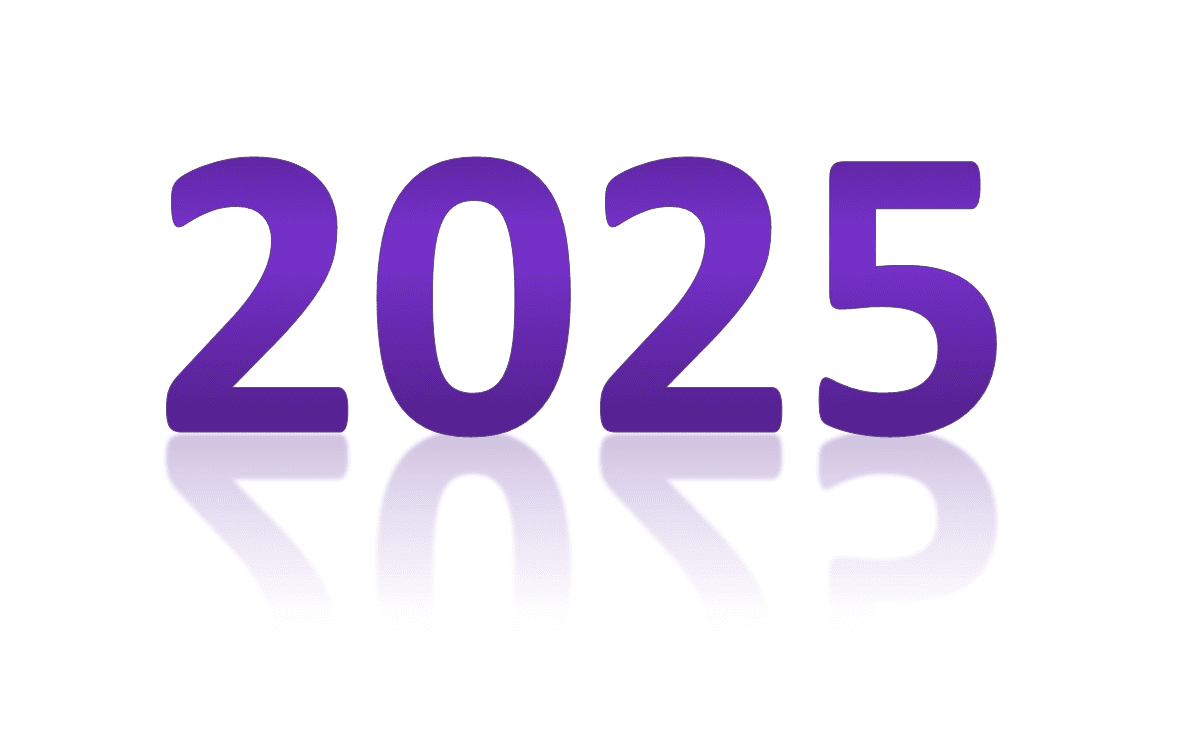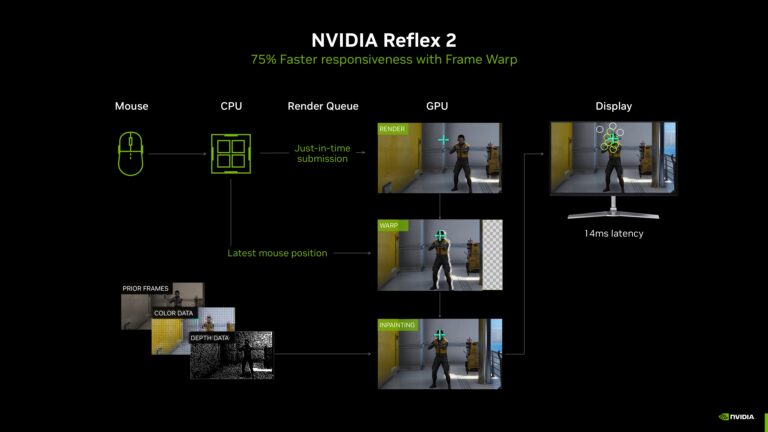
As we approach the year 2025, the pace of technological, social, and environmental changes continues to accelerate, promising a future filled with remarkable advancements and challenges. This article delves into the various domains where significant transformations are expected, offering a glimpse into what the next year might hold.From the rapid development of artificial intelligence and robotics to groundbreaking innovations in biotechnology and sustainable energy, technology will play a pivotal role in reshaping our world.
The integration of 5G and edge computing will further enhance connectivity and data processing, fueling advancements in augmented reality, virtual reality, and the metaverse.In addition to technological shifts, societal changes will impact communication, information sharing, and the global economy. The rise of the gig economy, the adoption of cryptocurrencies, and new regulations will redefine work and financial landscapes. Meanwhile, health and well-being will see significant improvements through personalized medicine and AI-powered diagnostics.
Environmental sustainability and climate technology will also take center stage, with a focus on renewable energy and conservation efforts. As we navigate these changes, the importance of addressing economic inequality, promoting social justice, and safeguarding privacy will become ever more crucial.Join us as we explore these predictions in detail, examining the potential impacts and opportunities that lie ahead in 2025.
Technological Advancements in 2025
In 2025, new technology will significantly impact our lives. Artificial intelligence, robotics, and immersive experiences are leading this transformation. These advancements are changing how we work, communicate, and enjoy leisure activities.
Tech Predictions for 2025: A Glimpse into the Future
| Domain | Prediction | Explanation | Potential Impact |
|---|---|---|---|
| AI & Robotics | Hyper-automation through AI-powered robots: Advanced robots will become a familiar sight in workplaces, handling everything from manufacturing to customer service. | Integration of AI algorithms and sophisticated sensors will enable robots to perform complex tasks autonomously, increasing efficiency and productivity. | Job displacement in certain sectors, ethical concerns regarding robot use, but also improved working conditions and accelerated innovations. |
| 5G & Edge Computing | Ubiquitous connectivity and ultra-fast data processing: Widespread 5G adoption and powerful edge computing capabilities will fuel real-time applications and immersive experiences. | Low latency and increased bandwidth will power advancements in AR/VR, autonomous vehicles, and smart cities, with data processing happening closer to the source for faster response times. | Transformation of industries like healthcare, transportation, and entertainment, but also privacy concerns and potential digital divide issues. |
| Biotechnology & Healthcare | Personalized medicine and AI-powered diagnostics: Genomic sequencing and AI will revolutionize disease prevention and treatment with personalized medicine and early diagnosis. | Advancements in genetic engineering, CRISPR technology, and machine learning will enable tailoring treatments to individual patients and predicting health risks with greater accuracy. | Improved life expectancy, personalized drug development, and ethical considerations surrounding genetic editing. |
| Climate Tech & Sustainability | Widespread adoption of renewable energy and green technologies: Investments in solar, wind, and other renewable energy sources will accelerate, alongside innovations in clean transportation and sustainable materials. | Governments and businesses will prioritize transitioning to renewable energy sources and green technologies to combat climate change and reduce carbon footprint. | Improved air quality, reduced environmental impact, and potential economic benefits from clean energy development. |
| Metaverse & VR/AR | Emergence of the metaverse and immersive digital experiences: The virtual world will expand and offer diverse experiences, blurring the lines between reality and digital realms. | Advancements in VR/AR technology, haptic feedback, and brain-computer interfaces will create more realistic and interactive virtual environments for work, entertainment, and social interaction. | New educational and artistic opportunities, but also social and ethical concerns around addiction, privacy, and virtual identity. |
Disclaimer: These are just some of the possible tech predictions for 2025, and the actual future may unfold differently. Many factors can influence technological advancements, and unforeseen breakthroughs or challenges could significantly change the landscape.
Artificial Intelligence
By 2025, artificial intelligence (AI) is expected to become more sophisticated, reshaping industries globally. AI technologies are predicted to improve healthcare through advanced diagnostics and personalized treatment plans. Tech firms are also investing in AI to enhance customer service, using chatbots that can handle complex queries with ease.
- Healthcare: Improved diagnostics and personalized medicine.
- Customer Service: Chatbots handling complex queries.
Robotics and Automation
The landscape of robotics and automation is anticipated to expand significantly. Automation in manufacturing could lead to higher productivity and precision. The inclusion of robotics in daily life, from robotic assistants to automated transport, will likely become more commonplace, offering convenience and efficiency.
- Manufacturing: Increased productivity and precision.
- Daily Life: Robotic assistants and automated transportation.
Augmented Reality and Virtual Reality
Augmented reality (AR) and virtual reality (VR) are set to redefine entertainment and education. With AR, information overlays on the real world could provide interactive learning experiences. VR offers fully immersive environments which could transform gaming and professional training.
- Education: Interactive, overlaid information for learning.
- Entertainment and Training: Immersive environments for gaming and professional development.
Digitization is a driving factor in these advancements, making 2025 a pivotal year for tech growth. Each segment mentioned is not only revolutionizing its own sector but also creating interconnected impacts that help define what this stage in the 21st century will mean for technological progress.
Communication and Information
The landscape of communication and information is poised for significant shifts by 2025, with changes anticipated in how news is shared, the impact of social networks, and the protection of individual data.
Journalism and Media
The field of journalism is expected to become more tech-savvy, utilizing advanced tools for reporting and delivering content. Real-time translation and reporting could broaden audiences globally. Misinformation will be a persistent challenge, urging big tech companies to collaborate more closely with news organizations to promote accurate reporting.
Social Media and Digital Life
Social media platforms are evolving into spaces for more than virtual socializing; they are becoming hubs for commerce and education. With this transformation, users will find their digital connections embedded in daily routines, while platforms will likely harness user data to deliver personalized experiences. Youth will likely engage with social issues through these digital avenues, amplifying their voices in societal discussions.
Privacy and Data Protection
As concerns about data privacy escalate, regulations are anticipated to become stricter. These new rules would aim to protect individuals from unsolicited data sharing and use by corporations. Digital correspondence, like email, will see tighter security measures to safeguard private information. Transparency between users and service providers regarding data use will be essential in maintaining trust.
This section is meant to inform readers on the expected developments within communication and information as we move towards 2025, focusing on changes to journalism, social media, and data privacy.
Global Economy and Markets
As we look towards 2025, the global economy appears to be navigating a complex landscape of change. From shifts in employment to the evolving role of digital currencies, these elements are creating new dynamics in both economic structures and markets.
Economic Inequality
Economic inequality remains a pressing concern. The gap between the rich and the poor is a reflection of existing economic structures and market capitalism. Efforts to address this imbalance include policy reform and inclusive growth initiatives which aim to create a fairer distribution of wealth and opportunities.
Gig Economy and Employment
The gig economy is reshaping employment, offering both challenges and opportunities. On one hand, it provides flexibility and entrepreneurship; on the other, it raises questions about job security and benefits.
- Pros:
- Increased flexibility for workers
- Diverse income streams
- Cons:
- Possible lack of job stability
- Often no benefits like health insurance or retirement plans
Moving towards 2025, it’s key to watch how governments and markets respond to these changes and what this means for workers and the economy as a whole.
Cryptocurrencies and Blockchain
Cryptocurrencies and blockchain technology are transforming financial transactions and the way we view traditional banking.
Bitcoin, for instance, has shown us that currencies don’t need to be tied to a particular country. Meanwhile, blockchain is offering new levels of security and transparency for transactions. Key aspects include:
- Security: Transactions are encrypted and hard to tamper with.
- Transparency: Every transaction is recorded and can be seen by anyone who has access to the blockchain.
These technologies are not just about digital money; they are changing how we trust and participate in the economy. As we approach 2025, the integration of these technologies into mainstream finance is a trend to keep an eye on.
Health and Well-being
The coming year will see significant developments in the sectors of disease prevention, mental health support, and cutting-edge healthcare technologies. Key advancements are expected in how we tackle pandemics, care for our mental well-being, and innovate within the healthcare space to elevate patient care.
Covid-19 and Future Pandemics
Since the outbreak of the Covid-19 pandemic, the world has become more vigilant about infectious diseases. Governments and health organizations stress the importance of vaccinations as a primary defense against Covid-19 and potential future pandemics. In 2025, ongoing research is likely to bring new vaccines that are even more effective and easier to distribute. Health-monitoring tools have also become indispensable, with wearables tracking potential symptoms and diagnostics providing swift identification of illnesses.
- Vaccinations: Key to preventing disease spread.
- Diagnostics: Critical for quick detection and response.
Mental Health
Mental health has gained prominence as a global concern. In the aftermath of the Covid-19 pandemic, there is a significant push for better mental health services and awareness. Schools, workplaces, and community centers prioritize support and dialogue, making mental health care more accessible and less stigmatized. Innovative treatments and therapies emerge, tailored to individual needs and facilitated by technology.
- Accessibility: Removing barriers to mental health care.
- Innovation: Tailoring treatments through technology.
Healthcare Innovation
Healthcare innovation has leaped forward, with a special focus on patient-centric care. AI and machine learning offer precise diagnostics and personalized treatment plans. Telehealth has expanded, making healthcare accessible even in remote areas. In addition, advancements in health-monitoring gadgets allow individuals to stay proactive about their health, catching issues early and managing chronic conditions more effectively.
- AI in Diagnostics: Providing accurate and personal care plans.
- Telehealth: Bridging the gap for remote areas.
Technology and a growing awareness of health and well-being needs have been the catalysts for change in the healthcare landscape. With each passing year, we see more opportunities to live healthier, more resilient lives.
Society and Culture
Predictions for 2025 highlight significant advancements and changes in education, cultural norms, and social justice. Education will evolve with technology, cultural shifts will reflect new values, and social justice movements will continue to fight for equality.
Education and Learning
The classroom of 2025 has transformed with interactive technology to enhance learning. Students access resources through digital platforms and AI tutors, making education customizable. Online learning communities have broken down geographical barriers, connecting learners worldwide.
Cultural Shifts
Society is witnessing a surge in digital communication, altering how people interact and understand each other. The value placed on tech-savviness has grown, and as a result, culture has become more inclusive of various forms of digital expression. There’s a strong drive for positive change, with cultures blending more than ever before.
Social Justice Movements
Social justice and racial justice movements, like Black Lives Matter, have spurred conversations on oppression and equity worldwide. These movements aim to bring about systemic change through peaceful protests, policy reforms, and public awareness campaigns, fostering a society more attentive to rights and equality.
Politics and Government
In 2025, the landscape of politics and government is expected to be reshaped by the impact of new regulations, shifts in civil liberties, and changes on the global stage.
Global Politics
The geopolitical scene is seeing significant reconfigurations. The United States, along with other nations, may face complex challenges including shifts in alliances and the rise of new powers. Trade agreements and global cooperation could change as countries focus on gaining strategic advantages.
Countries are likely to grapple with issues of civil unrest, which may be sparked by a variety of causes, ranging from economic woes to political dissatisfaction. Governments will have to navigate these delicate situations, balancing the need for stability with respecting the rights of their citizens.
Regulatory Changes
In the realm of technology, particularly in Silicon Valley, new regulations may be put into place to address the growing concerns over privacy and the ethical use of AI. The balance between innovation and user protection is a hot topic, prompting governments to act to protect citizens without stifling technological advancement.
Regulation in various sectors, from environmental to digital, is expected to become more stringent. The governments’ response to climate change, data protection, and corporate accountability will likely feature new laws that businesses and individuals will have to adapt to.
Civil Liberties and Ethics
As technology becomes even more ingrained in everyday life, issues of privacy and AI ethics are coming to the forefront. There will be a push for clear ethical guidelines on AI development and its application, particularly in sensitive areas such as surveillance and personal data.
The European Travel Information and Authorization System (ETIAS) is anticipated to evolve, possibly impacting civil liberties with increased data collection on travelers. This could lead to worldwide discussions on the balance between security and personal freedoms.
Protection of civil liberties may become a central theme as policies and laws adapt to an increasingly digital society. Governments will be tasked with ensuring that advancements in technology do not encroach upon fundamental rights and freedoms. The scrutiny on how personal data is used and shared will intensify, leading to potential legal challenges and policy revisions.
Climate and Environment
In 2025, the conversation about climate and environment will center on the impact of climate change, advancements in sustainable technologies, and the conservation of ecosystems.
Climate Change Impact
By 2025, scientists warn that there’s a significant chance that the Earth’s temperature could exceed historical averages by 1.5°C, a tipping point for climate and heat patterns. With increased greenhouse gas emissions, particularly carbon, heat-trapping in the atmosphere causes a domino effect on the environment. For instance, the Greenland ice sheet may face increased melting rates, leading to rising sea levels and potentially altering ocean currents, including the pivotal Gulf Stream. Such changes are expected to exacerbate extreme weather events, including storms, which threaten both natural and human systems.
Sustainable Technologies
To mitigate climate change impacts, global carbon emissions must peak by 2025. This goal requires a swift transition towards sustainable technologies. The energy sector focuses on reducing reliance on fossil fuels and enhancing the resilience of energy systems. Innovations such as solar, wind, and energy storage solutions are on the rise. These technologies are central to decarbonization efforts and help decrease the carbon footprint. The adoption of electric vehicles also plays an instrumental role in curbing emissions and fostering a greener environment.
Ecosystem Conservation
Ecosystem conservation is vital for maintaining biodiversity, healthy water systems, and atmospheric oxygen levels. Through 2025, conservation efforts will increasingly prioritize restoring and protecting habitats that support resilience to climate impacts. Initiatives to protect critical areas like rainforests, which serve as carbon sinks and oxygen producers, are especially important. Strengthening these ecosystems helps safeguard against the adverse effects of environmental changes, ensuring they can continue to provide essential services and support diverse species.
Work and Employment Trends
Work and employment are shifting gears as we head toward 2025, with remote work becoming more common, automation reshaping job roles, and the workforce adapting to new demands.
Remote Work Evolution
Remote work, once a perk, has become a mainstay. Organizations have realized that jobs can be done from nearly anywhere, and many employees are not just asking for this flexibility—they’re expecting it. With tools like Zoom and cloud-based platforms, teamwork continues across cities and time zones. As businesses become more comfortable with this setup, telework is being woven into company cultures, influencing everything from hiring to office design.
Automation in the Workplace
The presence of automation and robotics is growing, and they’re changing how we work. In sectors like manufacturing, automation can take over tasks that are repetitive or dangerous for humans, which means employees need to adapt and learn new skills. Meanwhile, white-collar jobs are also feeling the impact, as software becomes capable of handling tasks like data analysis and even some customer service functions.
The Future of the Workforce
The workforce’s future is being shaped by more than just technologies; demographic shifts and new attitudes are also key drivers. The gig economy is expanding, offering people the chance to work on short-term contracts or freelance. This stands to have a profound effect on job security and work-life balance. As these trends continue, HR departments are preparing for a more diverse, dynamic, and digital workforce by 2025.
Emerging Geopolitical Landscapes
The year 2025 is poised to witness significant shifts in global politics, with North America, Europe, and Asia-Pacific at the center of transformative changes.
North American Dynamics
United States: With a renewed focus on international alliances, the U.S. is likely to take bolder steps in shaping North American policies. Efforts will probably intensify to bolster economic and environmental cooperation across the continent, with the U.S. leading the charge in addressing climate change and pushing for technological innovation.
Canada and Mexico: Strengthening ties through USMCA trade agreements, Canada and Mexico are anticipated to align more closely with U.S. initiatives, particularly in sectors like automotive production and energy resources.
European Political Climate
European Travel Information and Authorization System (ETIAS): By 2025, this automated IT system for managing visitors to the Schengen Zone should be fully operational, enhancing border security and aiding in smoother travel without veering away from stringent data protection standards.
Politics: Elections across Europe will be the litmus test for the European Union’s solidarity, with policies on immigration, economic reform, and climate action taking center stage. European countries are also expected to continue grappling with balancing national sovereignty against the benefits of EU membership.
Tensions in Asia-Pacific
Taiwan: Political tensions surrounding Taiwan are likely to persist, with both the island and China’s activities remaining central to U.S. and regional security concerns. Expect an increase in diplomatic activities as countries navigate the sensitive cross-strait relations and advocate for stability in Asia-Pacific.
Regional Powers: The Asia-Pacific region will see power dynamics evolve, with key players like Japan, India, Australia, and South Korea seeking to assert their influence and secure their interests amid rising challenges, both economically and militarily.
Advances in Science and Research
As 2025 approaches, significant strides in space missions, healthcare advancements, and understanding of the physical universe underscore the ingenuity of human research and exploration.
Space Exploration and NASA
NASA’s ongoing efforts in space exploration are set to surpass previous boundaries. They are planning new missions to study the cosmos and search for life beyond our planet. Engineers and scientists work together, crafting probes and telescopes that can endure extreme cosmic conditions. These tools not only seek to unravel the universe’s secrets but also aim to foster our understanding of Earth’s place in the vast expanse of space.
Medical Research
In the field of medical research, scientists are breaking new ground. Innovations in synthetic biology and computational virology are accelerating drug testing and disease treatment, moving us closer to personalized medicine. Medical devices, ranging from wearables to implants, are becoming smarter, more connected, and more capable of monitoring patient health in real time, leading to earlier diagnoses and more effective treatments.
Physics and Humanities
Physics continues to blend with the humanities to answer profound questions about our existence. Researchers are not just confined to labs; they collaborate across disciplines to investigate the basic laws of nature. This cross-pollination of ideas enriches both the sciences and the humanities, offering a broader perspective on the world and sparking conversations that shape our understanding of reality.
Urban Development and Smart Cities
The landscape of urban development is swiftly transforming with the advent of smart cities, integrating cutting-edge technology to create more efficient and livable spaces.
Smart Systems and IoT
Smart cities are harnessing the power of the Internet of Things (IoT) to improve public services and the quality of life for residents. They feature a network of sensors and devices that collect real-time data, which is then used to optimize resources such as energy and water. For example, smart lighting systems can reduce electricity usage by dimming street lights when no movement is detected.
- Key Elements:
- Sensors: Track and manage urban services
- Connected Devices: Enable communication between services
- Data Analytics: Provide insights to improve efficiency
Urban Planning and Density
Strategic urban planning directly influences city density, aiming for a balance that fosters both vibrant communities and sustainable growth. With an uptick in urban populations, cities like New York are projected to expand, necessitating smarter use of space. Officials are turning to high-density solutions such as multi-use buildings to maximize utility without unnecessary sprawl.
- Urban Density Priorities:
- Mixed-use developments
- Efficient public transport systems
- Accessible green spaces, even in areas like Greenland
Infrastructure Resilience
A core component of smart city development is infrastructure resilience—ensuring that urban centers can withstand and rapidly recover from various challenges. Cities are bolstering their resilience strategies by incorporating local data centers and advanced analytics to anticipate and respond to issues from natural disasters to cyber threats.
- Strategies for Enhanced Resilience:
- Redundant systems: Multiple backups for critical services
- Edge computing: Processing data close to where it’s needed
- Sustainable materials: Building with long-lasting, eco-friendly materials
Frequently Asked Questions
As we approach 2025, people are brimming with questions about the near future, especially regarding technology, economy, politics, environment, and space exploration.
What are the major technological advancements expected by 2025?
Technological growth is speeding up, with big leaps forward in areas like network connectivity, smart devices, and digitally-enhanced personal living. By 2025, we expect everyday life to be even more interconnected, with technologies such as ultra-fast internet and autonomous vehicles becoming more commonplace.
How is artificial intelligence projected to evolve by 2025?
Artificial intelligence (AI) is set to become more integrated into our work and home environments. We anticipate AI systems will improve in decision-making capabilities and become more personalized. For instance, AI is predicted to significantly alter the finance sector, enhancing efficiency and customizing user experiences.
What economic trends are forecasted for the global market by 2025?
The global market is predicted to witness shifts driven by technological advancements and changing consumer behaviors. It’s likely that there will be increased demand for digital services and that companies that adapt quickly to AI and automation will thrive, which could also result in job market transformations.
What significant changes in global political power dynamics are anticipated by 2025?
By 2025, changing political alliances and emerging economic powers may alter the landscape of international relations. There’s a chance that new global leaders will emerge, potentially reshaping policies and trade agreements. Experts suggest a trend towards nationalism in some areas and growing international cooperation in others.
How might climate change policy and actions progress by 2025?
Policies and actions against climate change are expected to ramp up. Many countries are aiming to introduce stricter environmental regulations and invest in renewable energy, with goals to reduce carbon emissions and combat the effects of global warming.
What are the expected developments in space exploration by 2025?
Space exploration is poised for thrilling developments. Projects like lunar expeditions, mars rovers, and even the first steps toward Martian colonization could take shape. Advances in rocket technology may make space more accessible, potentially opening up new opportunities for research and commercial ventures.






